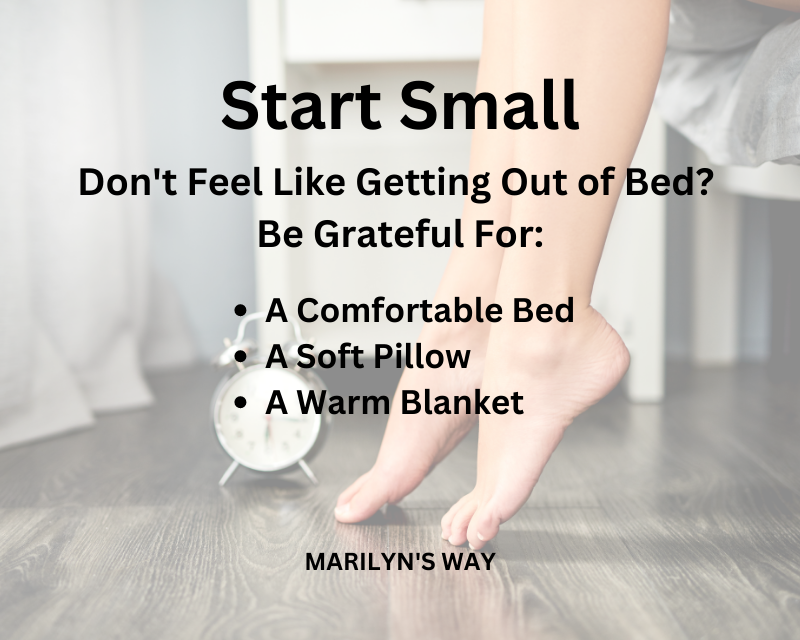Depression is a serious mental health condition that can be debilitating if you suffer from it. While there are many treatments available, one that is often overlooked is gratitude.
Depression often responds to and improves with lifestyle changes in addition to therapy and, in some cases, medication. Simple lifestyle changes, such as getting more sleep and exercising each day, are simple to put into effect. Others, however, like practicing an attitude of gratitude, might seem more elusive.
Working on being more grateful has helped me get a handle on my depression. It has helped me to combat my depression symptoms and made my depression easier to treat. Here are a few ways in which gratitude helps to combat depression, as well as some tips on being more thankful in your everyday life.
1. Gratitude Can Give You a New Perspective
When you’re struggling with depression, it can be difficult to get your mind off of your troubles. You might be like me always being in physical pain and certainly in emotional pain. Focusing on things that you’re grateful for can help you change your perspective a bit.
How? You might need to start small; for example, maybe you don’t feel like you can get out of bed, but you can still be grateful for having a comfortable bed, a soft pillow, a warm blanket.
Looking for more and more things to be grateful for, you’ll find more and more to add to your list. It’s similar to the phenomenon that happens when you buy a new car: You start seeing “your” car everywhere. You never knew that there were so many Priuses or Altimas (and in your color, too!). Of course, there aren’t any more of your particular kind of car on the road; you’re just noticing them. The same thing happens when you start to look for little things to be grateful for: they just keep showing up.
2. Gratitude Can Help You Smile
When I’m depressed, I find myself not smiling much. It can be hard to think of something to smile about when I am feeling overwhelmed, distressed, and hopeless. This is when I must keep my mind open to the things that I am grateful for because it gives me the opportunity to smile more. Smiling is not only contagious to others, but it also begets more smiling.

You might have heard the advice to fake a smile until it’s real, and it really does work. When you are grateful, however, you won’t even have to fake it!
3. Gratitude Can Get You Out of the House
I used to struggle to get out of the house! Every move towards it was heavy and exhausting. I live with fibromyalgia, am ADHD and have Sleep Apnea. I would finally get myself ready and become too tired to go. I knew I needed to exercise and the Wellness Center opened 5 years ago. My first step was to join. My motivation was to lose 40 pounds before my 40th high school class reunion. And so I began. When I first started I knew it would be hard and I just needed to focus on that. At first I was keeping my head down to the ground. The thing is I had to look up once in awhile and each time I started making eye contact with others who smiled at me. I would smile back. When I left the workout, the gals at the desk always say, ‘Thank you! Have a great day! This automatically made me say, ‘And thank you! Have a nice day too!’ Soon I looked forward to working out and was feeling better. The neat thing is doing this one habit of working out led me to getting a part time job! I became a Pool Attendant at a hotel and was forced to interact with others leading me to feeling even better. Today I still work at the hotel and have moved up to Head Housekeeping where I check each room and make sure it is clean and brand standard.
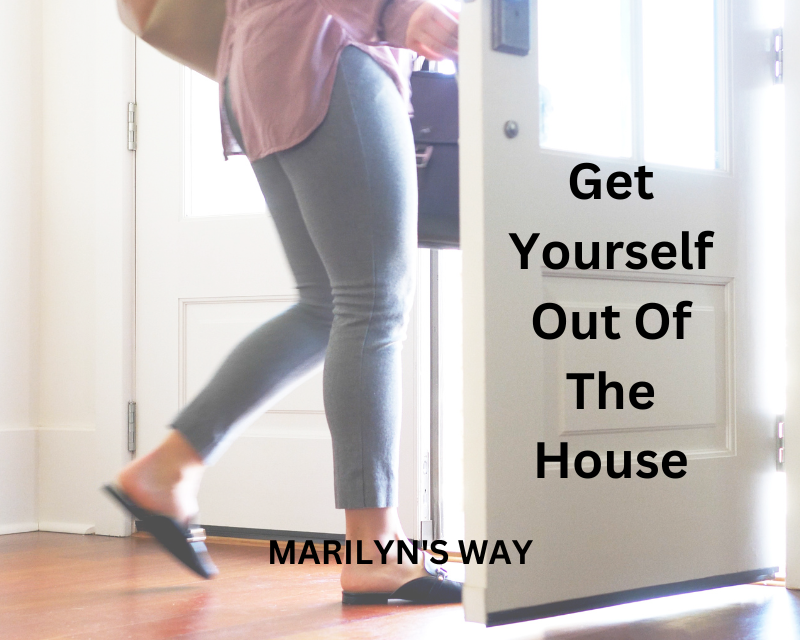
Another way that you can show gratitude is to thank others in the community for whatever they are doing to help you or other people. If you challenge yourself to go in a store and thank the checkout clerk, that will give you a mission and get you out of the house. Leaving the house is one way to get some exercise, spend a bit of time in the sun, and interact with others; all of these can help combat depression.
4. Gratitude Can Help You Be More Social
Now that I began working out and having a part time job, I was interacting with others. This increased the amount of time I spend socializing with other people and it helped combat some of my depression symptoms.
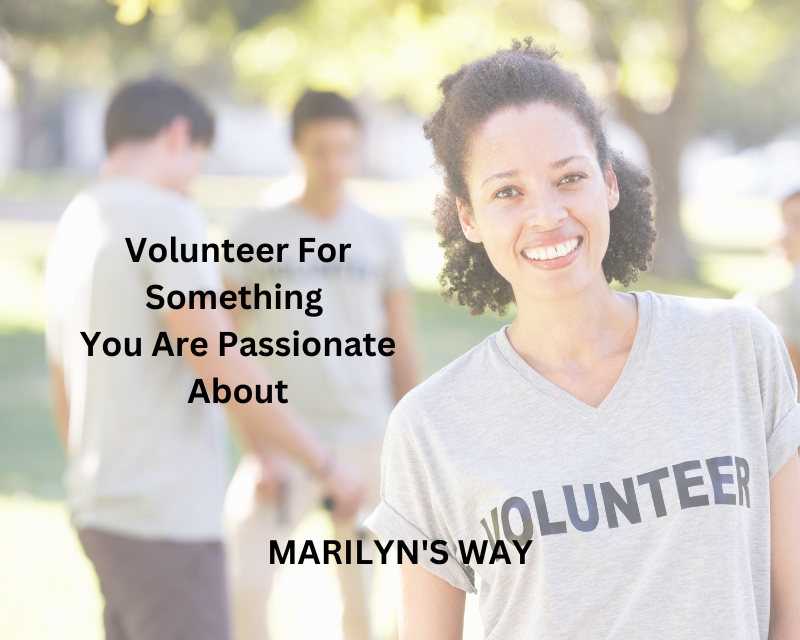
Gratitude can include volunteering, and by its nature, volunteering puts you in contact with other people. You will be interacting with not only the people you’re helping but also other volunteers. The shared interest can blossom into a friendship based on shared ideals, and that can be a non-threatening way to further interact. With all of the extra smiling you’ll be doing as you remember what you’re thankful for, you’ll be more likely to make friends, too!
5. Gratitude Can Help You Sleep Better
Sleep deprivation is very common in women. And when women do sleep poorly, they may have a harder time focusing. A lack of sleep can impact work and taking care of the home. This makes you more likely to develop depression. It can even suppress the immune system.

Taking a few minutes at the end of each day to think or journal about what you’re grateful for can make it easier for you to drift off to sleep. The mental and physical effects of getting enough sleep can boost women’s health significantly.
6. Gratitude Can Make Your Heart Healthier
You might not realize it, but being more grateful can boost your heart health. There’s evidence that gratitude can do the following:
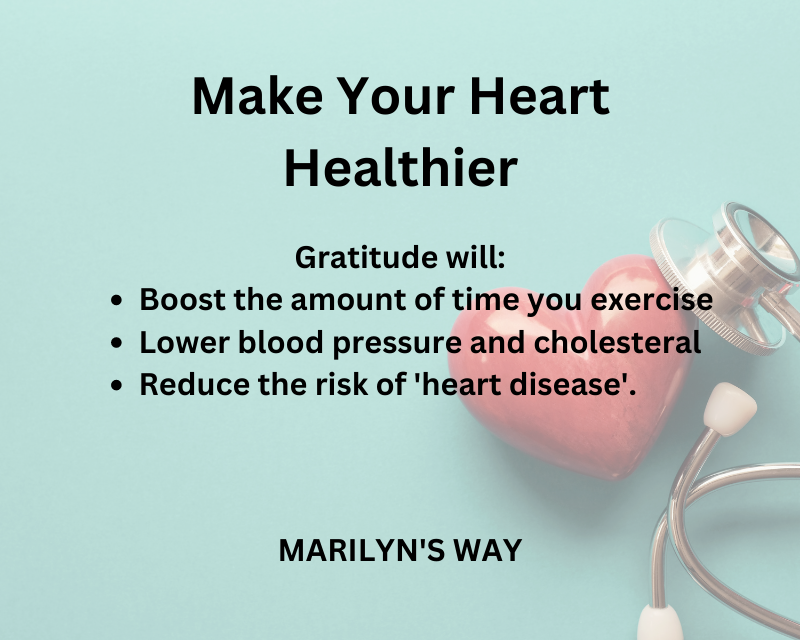
One reason this might be is that people who are grateful are more likely than others to volunteer to help others in the community. This can improve heart health. Gratitude also reduces stress, which is great for reducing high blood pressure and ultimately improving women’s health.
7. Gratitude Can Reduce Symptoms of Depression and Anxiety
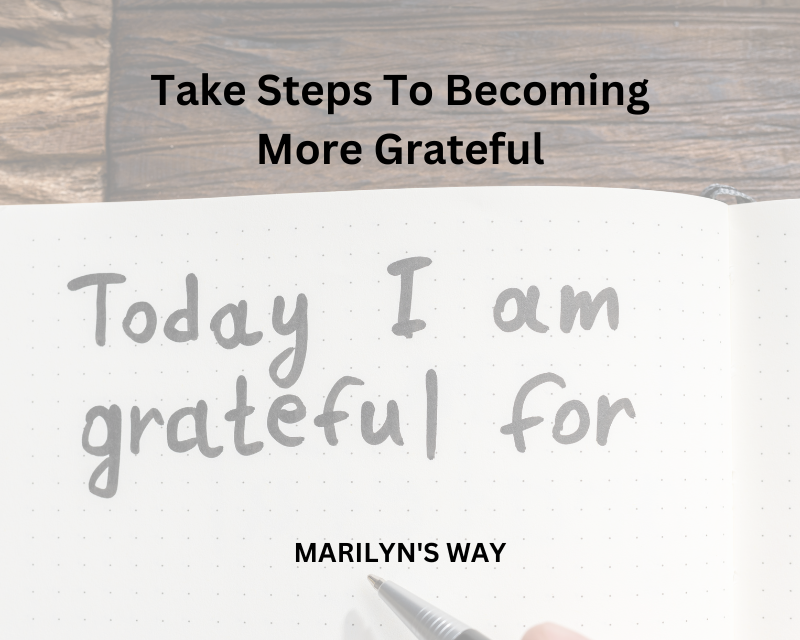
Another way in which gratitude can improve women’s health is by minimizing symptoms of depression and anxiety. If you are struggling with either of these mental health concerns, you might take steps toward being more grateful. This works by distracting the person, encouraging them to focus on the positive, and, often, getting them out of the house and doing things with other people. All of these, coupled with lifestyle changes like more exercise and more sleep (both of which gratitude helps with), can reduce symptoms and make life easier for those struggling with anxiety or depression.
8. Gratitude Can Help You Live Longer

With all of the mental and physical benefits of gratitude, practicing it can help you live longer. You might not think it’s much of an issue now for various reasons. Keep in mind, however, that cultivating an attitude of gratitude is a lifelong habit. Getting into that habit now can stretch it across the rest of your life.
Tips for Cultivating Gratitude in Your Life
Sometimes it can be hard to know where to begin when it comes to cultivating an attitude of gratitude. Fear not, here are some tips on making thankfulness a habit:
Keep a Gratitude Journal
It’s not easy to remember what you’re grateful for on hard days, so writing it down can help. Getting into the habit of journaling about what’s going right in your world can help you remember all that you have going for you on your darkest days. Reread your list often! To start, you can simply list two or three things you’re thankful for at the end of each day. Another good idea is to use some gratitude journal prompts. I created a Gratitude Journal Marilyn’s Way to get you started. I list 9 things I am grateful for.

Having a Gratitude Journal is what helped me pull myself out of depression. Many of the affirmations I said I didn’t believe but said them anyway. You have heard the phrase, “Fake It Until You Make It.” Included in the gratitude journal is a place to track water intake and what the weather is for the day. Marilyn selected 9 Gratitude Affirmations she has been using to help you get started. Get your Gratitude Journal today!
Gratitude Journal Marilyn’s Way – $4.99 US Dollars
Talk About What You’re Grateful For
Saying out loud what you’re glad to have allows you to think it, say it, and hear yourself saying it. This is a great way to cement it into your mind. I have to remind myself to say out loud what I am grateful for. Also, if you say it to someone else, you’re telling them that you’re trying to see the bright side of life. If you’re thankful for a person, be sure to let them know!
Make a Solid Plan to Volunteer to Help Others
One way to show your gratitude for all that you have is to volunteer to work with or for people who don’t have as much as you do. You can do this by working directly with them, by doing behind-the-scenes work like making phone calls or addressing envelopes, or by contributing to the community by taking bottled water to firefighters or participating in a trap-neuter-release program to help control the feral cat population. Make a plan and write it on your calendar. You can also ask a friend or loved one to help hold you accountable.
Model Gratefulness to Children or Teens
If you are teaching someone else how to do something, it’s more likely to stick in your own mind. Gratitude is no exception! Talk to your kids or teens about why they should show more gratitude, then model it for them. Be sure to thank those who serve you, like waiters and receptionists. You should also write thank-you notes and thank your children for whatever they do for you. You’ll get the double advantage of being more grateful yourself while also inspiring your kids to show gratitude in their own lives.
Combat Depression With Gratitude
Being grateful is just one lifestyle choice you can make that can help combat depression. Of course, gratitude in itself is not a cure; you should still see your mental health specialist for counseling and, if it’s right for you, medication. Remember that depression is not a life sentence; you can get your condition under control once you and your doctor find the right combination of lifestyle changes, therapies, and medicine. Keeping yourself open to the power of gratitude can make your days more pleasant and help you to overcome your depression.

